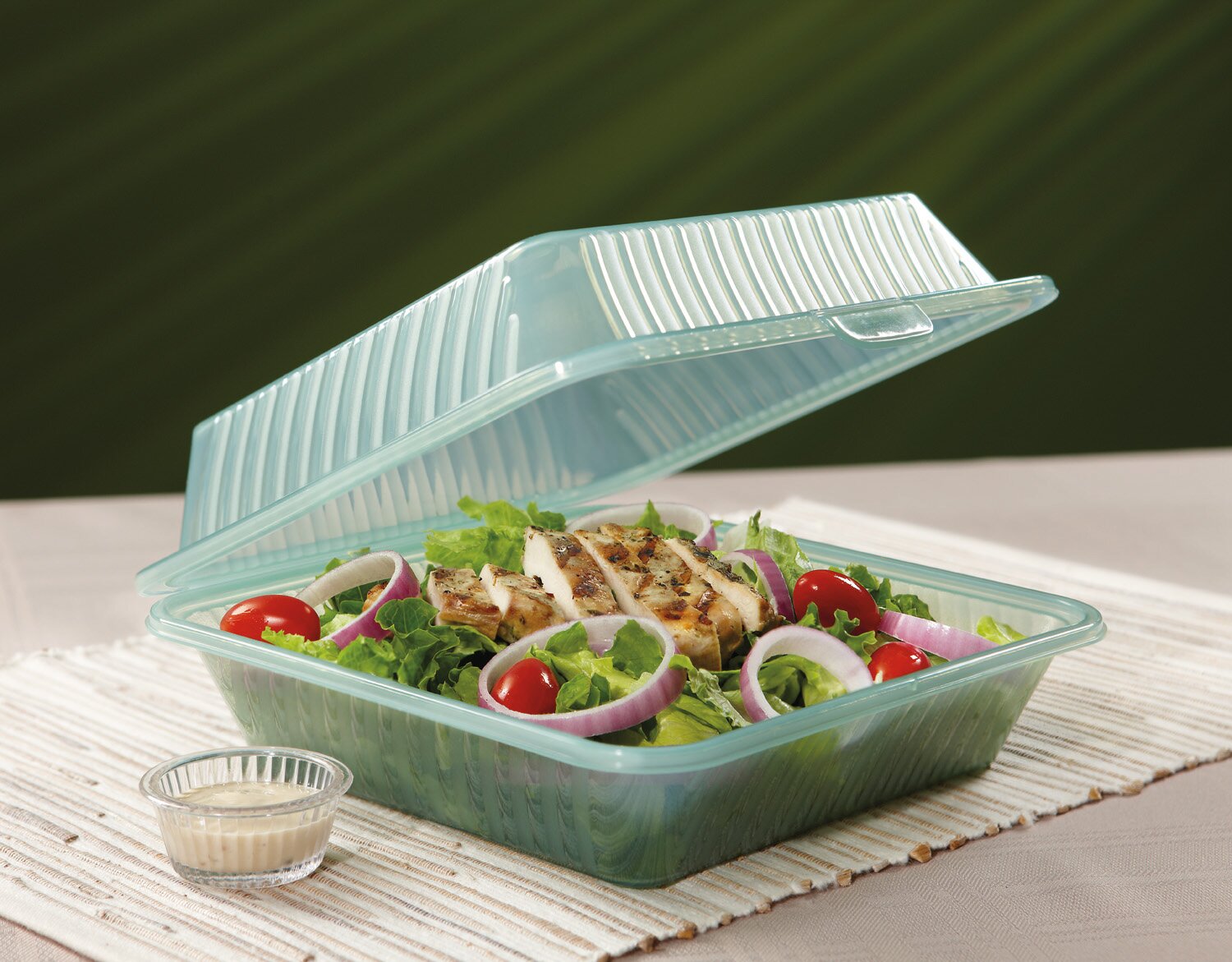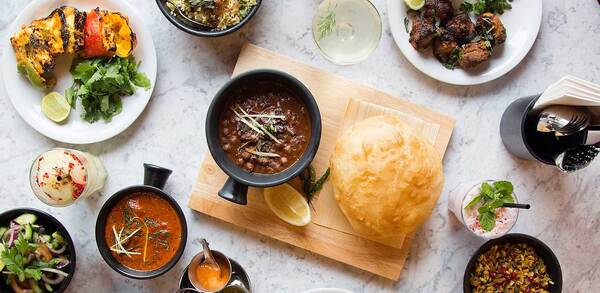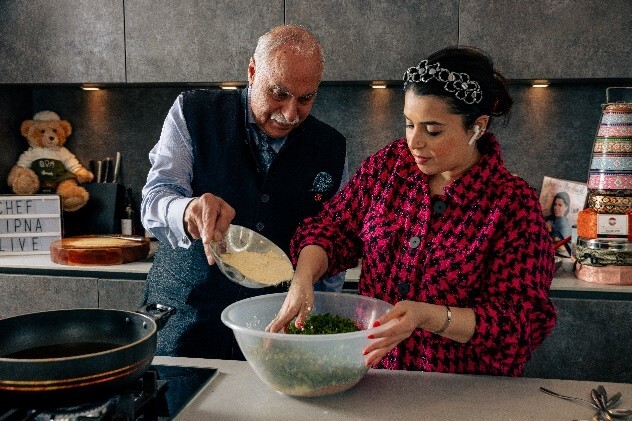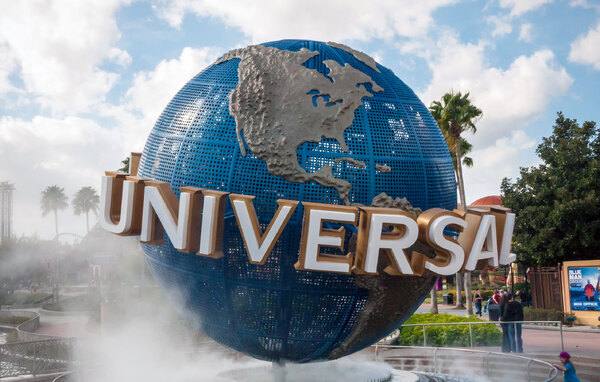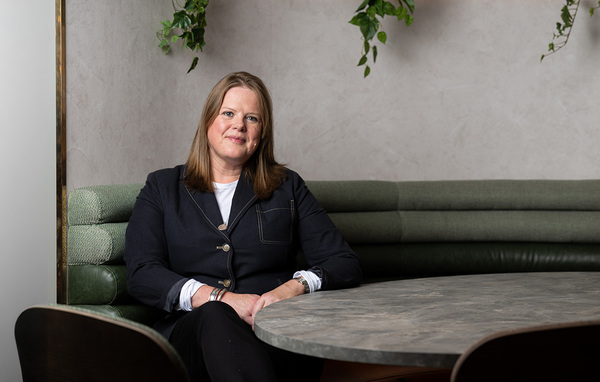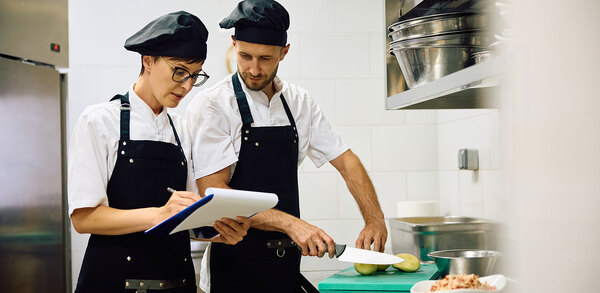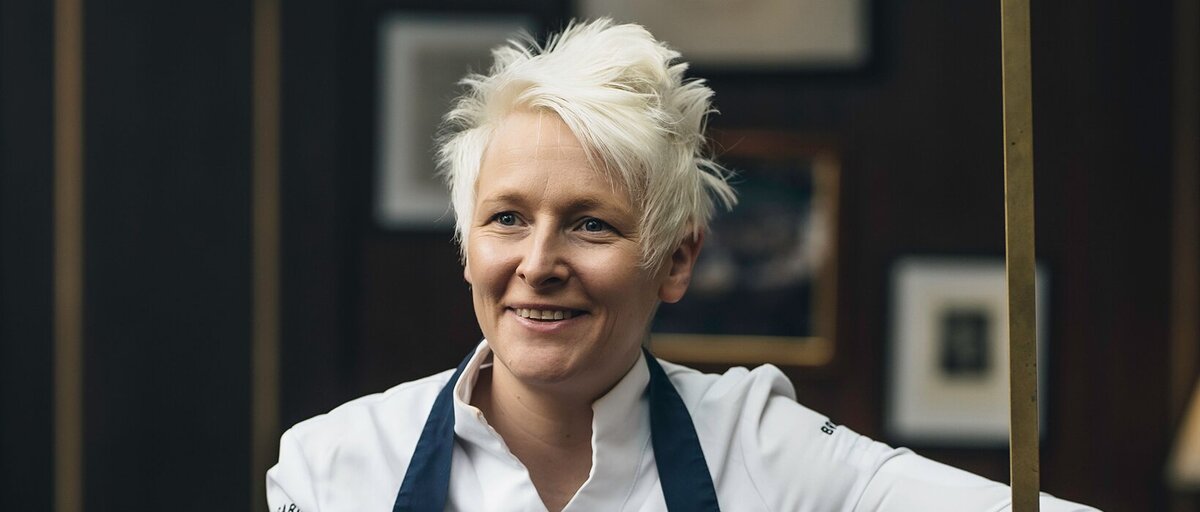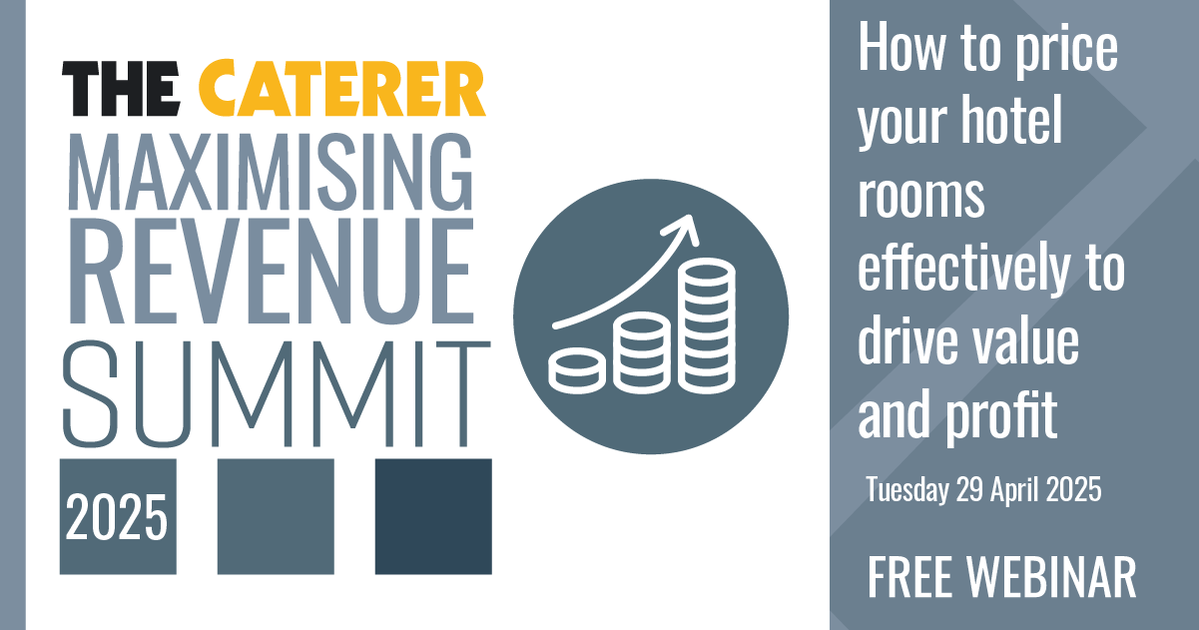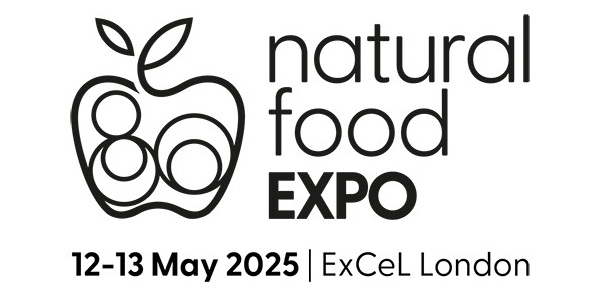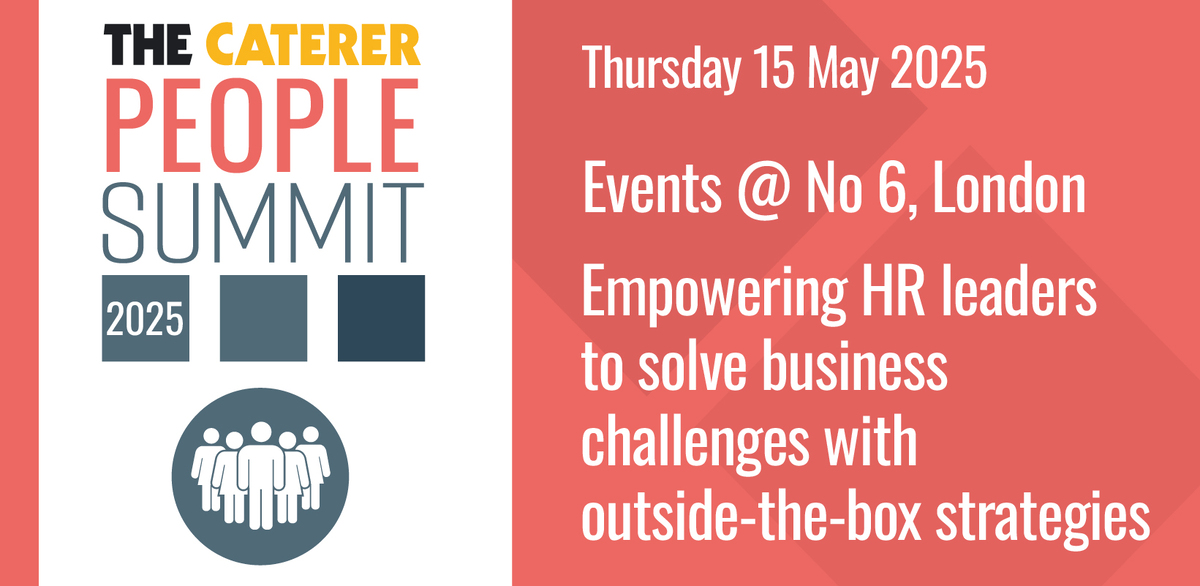The latest sustainable takeaway packaging and ways of dealing with waste food
Food and plastic waste mean money waste, and as the industry recovers from the impact of Covid-19, operators simply can’t afford these losses. Angela Frewin finds out what can be done.
Predictions that there will be more plastic than fish in the seas by 2025, estimates putting food waste as the cause of 6% of the world’s total greenhouse gas emissions, and the government’s imminent Recycling and Waste Resources strategy, are all reminders of the urgent need for sustainable solutions to food waste, packaging and disposables in the minds of caterers, consumers and legislators alike.
Covid-19 – with its lockdowns, fluctuations in demand and margin squeeze – has accentuated the challenges. Andrew Shakman, chief executive officer of food waste measurement group Leanpath, notes that the shift to reduced-contact service styles, such as grab-and-go, takeout and off-premise dining, means that “part of the new reality of foodservice is the increased use of plastics and disposables for sanitary service… with their associated rising costs.”
Parting with plastic
The UK Plastic Pact’s goal for all packaging to be reusable, recyclable or compostable by 2025 is spawning a variety of greener, circular- economy options, including Delphis Eco, offering the world’s first 100% recycled PCR (post-consumer recycled) plastic bottles across its range of eco-friendly cleaning chemicals.
Eco to Go, FSG Tableware’s answer to single-use disposables, is a range of polypropylene food boxes and rice-husk-based cups, made from recycled materials that are reusable up to 1,000 times and recyclable or compostable. These food boxes enabled the University of Birmingham’s Vale Student Village to divert 135,000 packs from landfill in a year, saving over £17,000.
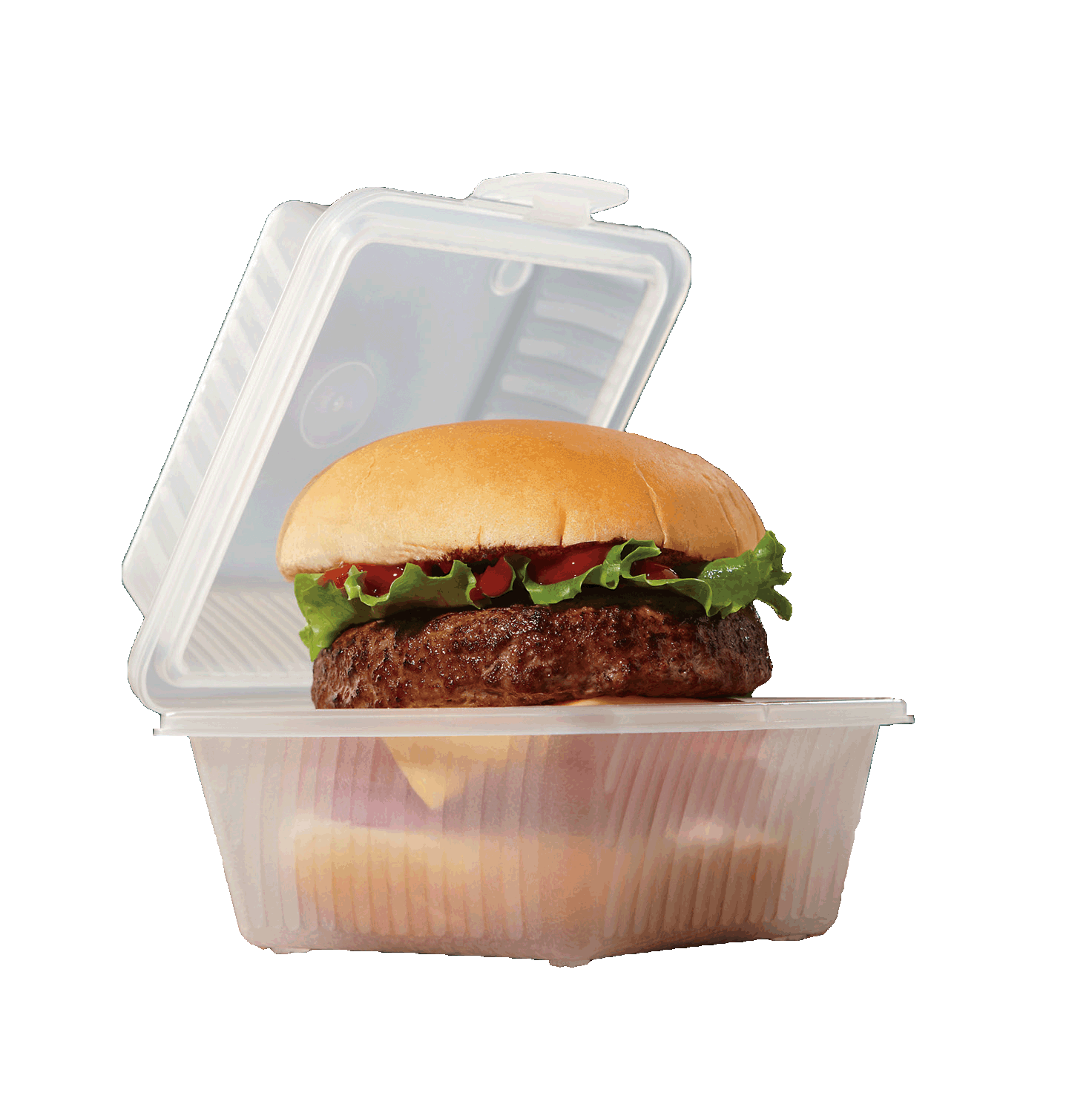
Havi’s paperboard-based Six500 packaging – marketed in the UK by Marren – offers a game-changing fast-food alternative to hard-to-recycle black plastic trays for manufacturers and central production kitchens. The world’s first oven-to-tableware containers are designed to work in accelerated ovens with no loss of food quality, texture or moisture, withstanding temperatures of 273°C for up to six minutes, or 2000W in microwaves.
Meanwhile, juice and smoothie brand Pip Organic has removed more than 10 million plastic straws from the waste stream by launching paper straws that bend like plastic across its entire range of children’s cartons this September, ahead of the October 2020 and July 2021 bans for foodservice and retail respectively.
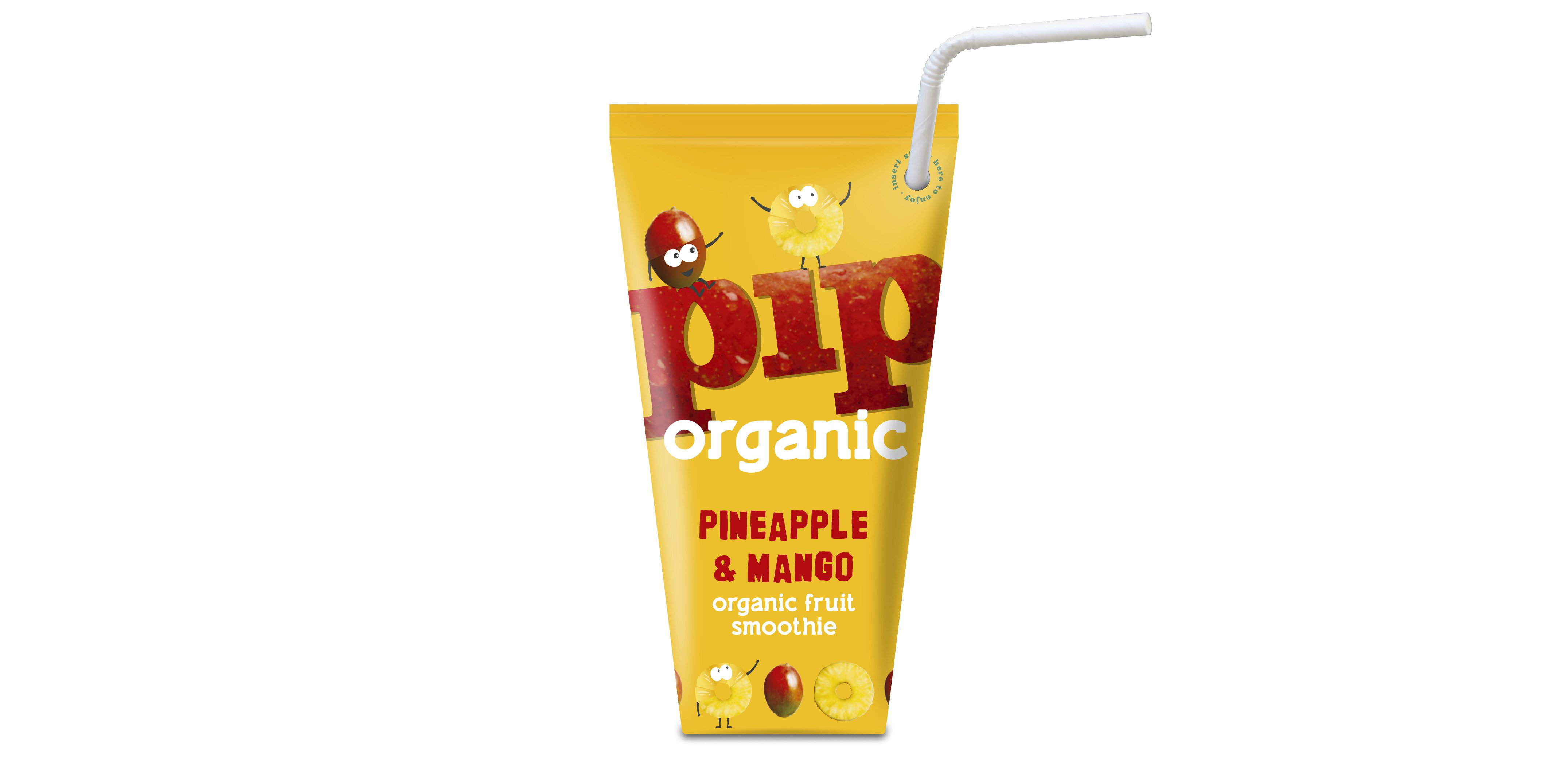
Compostable catering disposables specialist Vegware partnered with recycling collector Paper Round and commercial composter EnVar to launch a collection and composting service across London, Brighton and Sussex this summer, following a 12-month trial that proved the viability of collecting compostable packs and food waste from multisite collections (where one bad site could pollute the whole load).
The trial highlighted the importance of staff education and engagement alongside clear signage, which boosted the proportion of target material in compostable bins from 50% to 85% in a month.
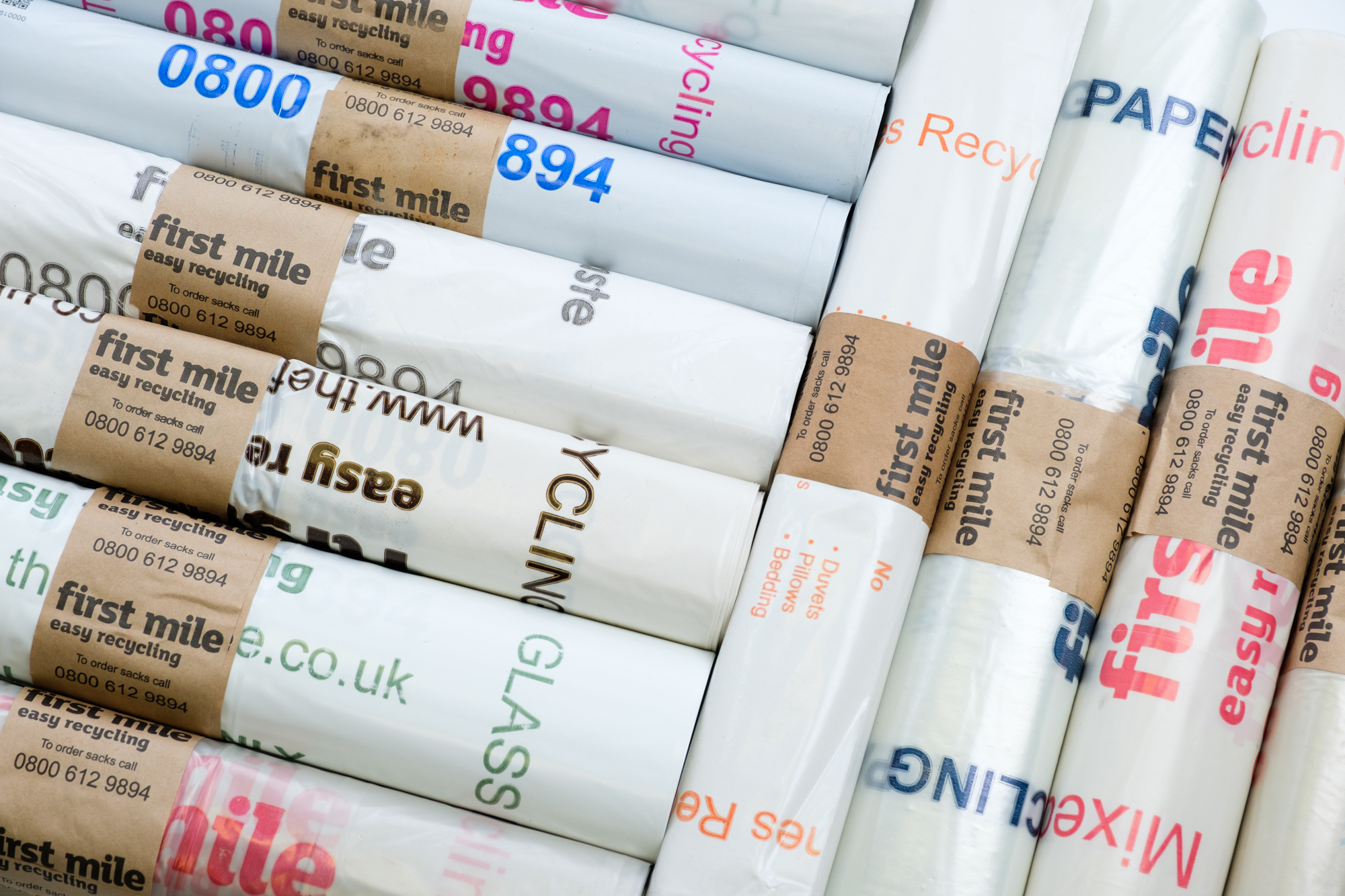
“There’s been a significant increase in the amount of compostable packaging being used by sustainability-savvy businesses, but these items need to be processed properly to provide any environmental benefits,” says Bruce Bratley, who founded First Mile last year as the UK’s first dedicated recycling service for these disposables, collected in kerbside sacks for conversion to fertiliser.
There’s been a significant increase in the amount of compostable packaging being used by sustainability-savvy businesses
And while recyclable materials are a vital part of any operation, one way to avoid plastic waste is by switching to reusable products. With Britons buying 7.7 billion single-use plastic bottles each year, EcoPure Waters managing director Paul Proctor suggests in-house water filtration systems as a cost-effective alternative for operators. They provide unlimited chilled, still and sparkling water served in robust, reusable and brandable glass bottles, with daily running costs starting from just £3.70.
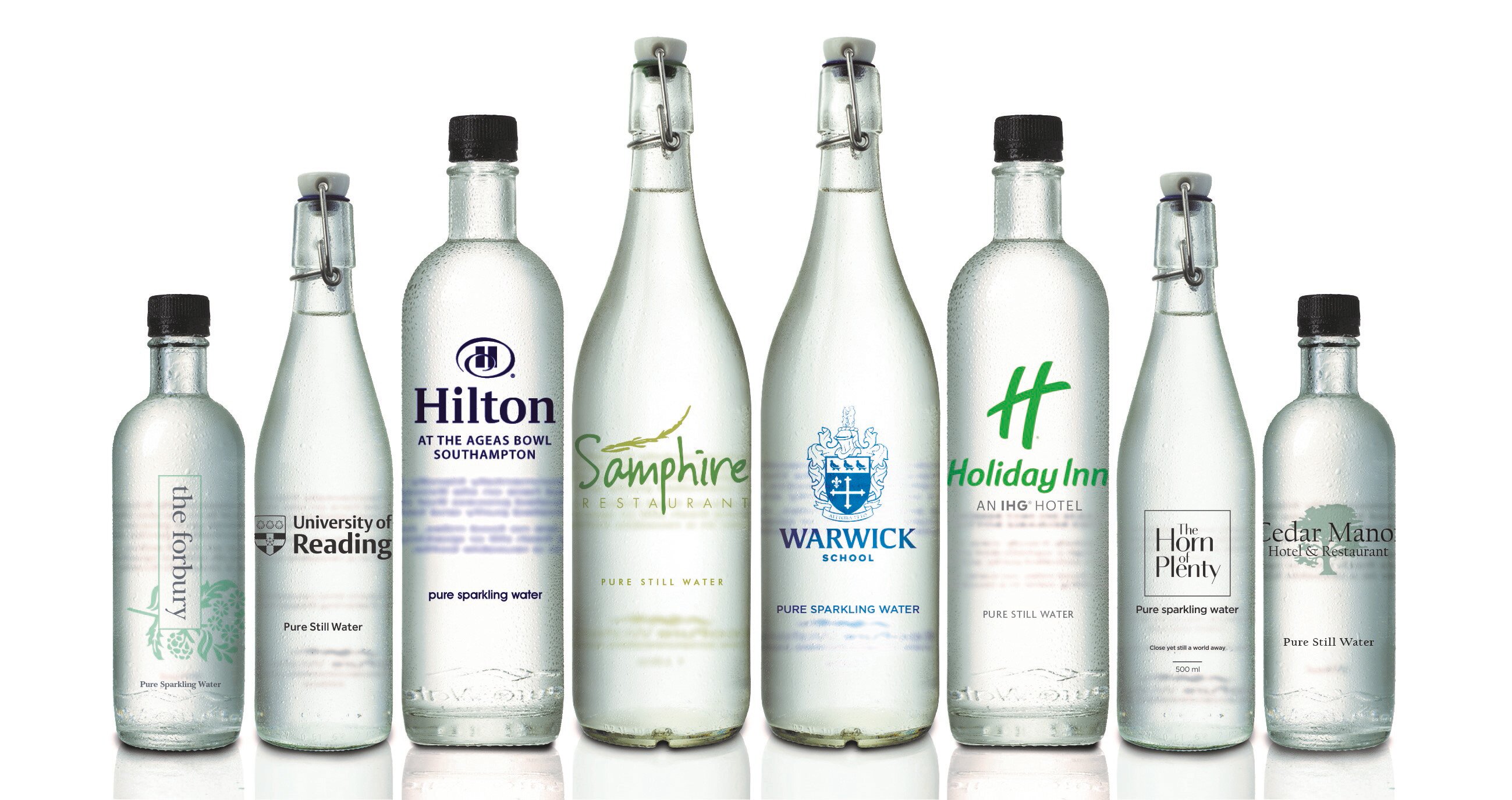
Waste not, want not
Hospitality and foodservice firms throw away 920,000 tonnes of food each year at a cost of £2.5b, but most is preventable, attributed by charity WRAP to spoilage (21%) and food prep (45%). This suggests improved purchasing systems, storage and chef training, plus a more nose-to-tail or root-to-shoot approach as a first line of action.
Minimising food and drink waste – one of the sector’s highest costs after labour – can help offset the costs of Covid-19, suggests Stewart Maranello, senior solution consultant at hospitality software specialist Fourth. Technology such as Fourth’s purchasing and inventory solution can help measure and identify waste at all stages of a product’s life cycle.
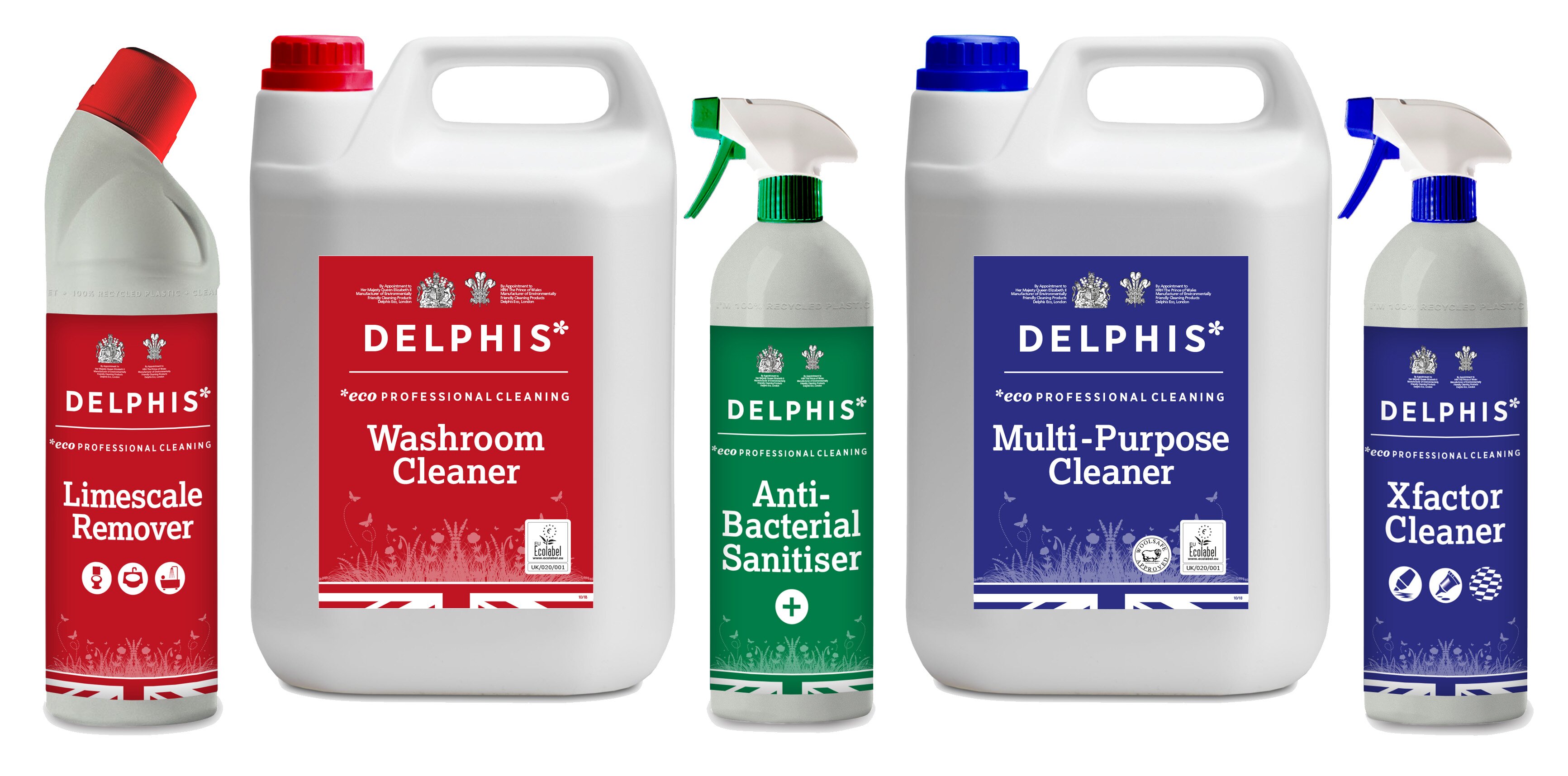
Leanpath Go is a mobile platform designed for Covid-era menus that tracks and measures food waste by item, rather than weight. Data entered via the tablet’s picture-based interface is sent to a cloud-based analytics platform.
Historical data may not help gauge demand as foodservice slowly reopens from shutdowns with changed menus and lower volumes. “Tracking your food waste can provide one of the few reliable and immediate sources of data on which to base production forecasts,” advises Shakman.
Tracking your food waste can provide one of the few reliable and immediate sources of data on which to base production forecasts
“While 75% of food waste is avoidable, the remaining 25% of unavoidable food waste will inevitably incur costs. Disposing of end-of-life food to landfill is the most costly option and should be avoided,” advises Kristian Roberts, marketing manager at Mechline.
Fears that operators would be required to buy permits to use on-site equipment such as dewaterers, digesters, sink-to-sewer disposal, in-vessel composters and grease removal units have been averted by a Foodservice Equipment Association (FEA) working group. It convinced the Environment Agency that its favoured option – collecting food waste for anaerobic digestion – was not a universal panacea, with 20% ending up in landfill due to contamination and kerbside collections prohibitively priced in rural areas.
“Modern on-site technologies offer green and convenient solutions towards the zero-landfill targets as well as generating by-products that can be turned into profit by foodservice operators,” observes FEA chair John Whitehouse.
Modern on-site technologies offer green and convenient solutions towards the zero-landfill targets as well as generating by-products that can be turned into profit
Mechline’s Waste₂O biodigester uses natural micro-organisms to convert 189kg of food waste into waste water in 24 hours using significantly less energy than many competitors.
Meiko’s Biomaster uses homogenisation as well as maceration to create a biomass that is pumped to holding tanks for use as compost or conversion to biogas. The system can handle items that many grey water and composting systems cannot, such as bones, shells, fat, oil and grease, flower stalks, soups, sauce and gravy, adds specification director Mick Jary. It also uses less electricity and water and needs no added chemicals, wood chips or enzymes.
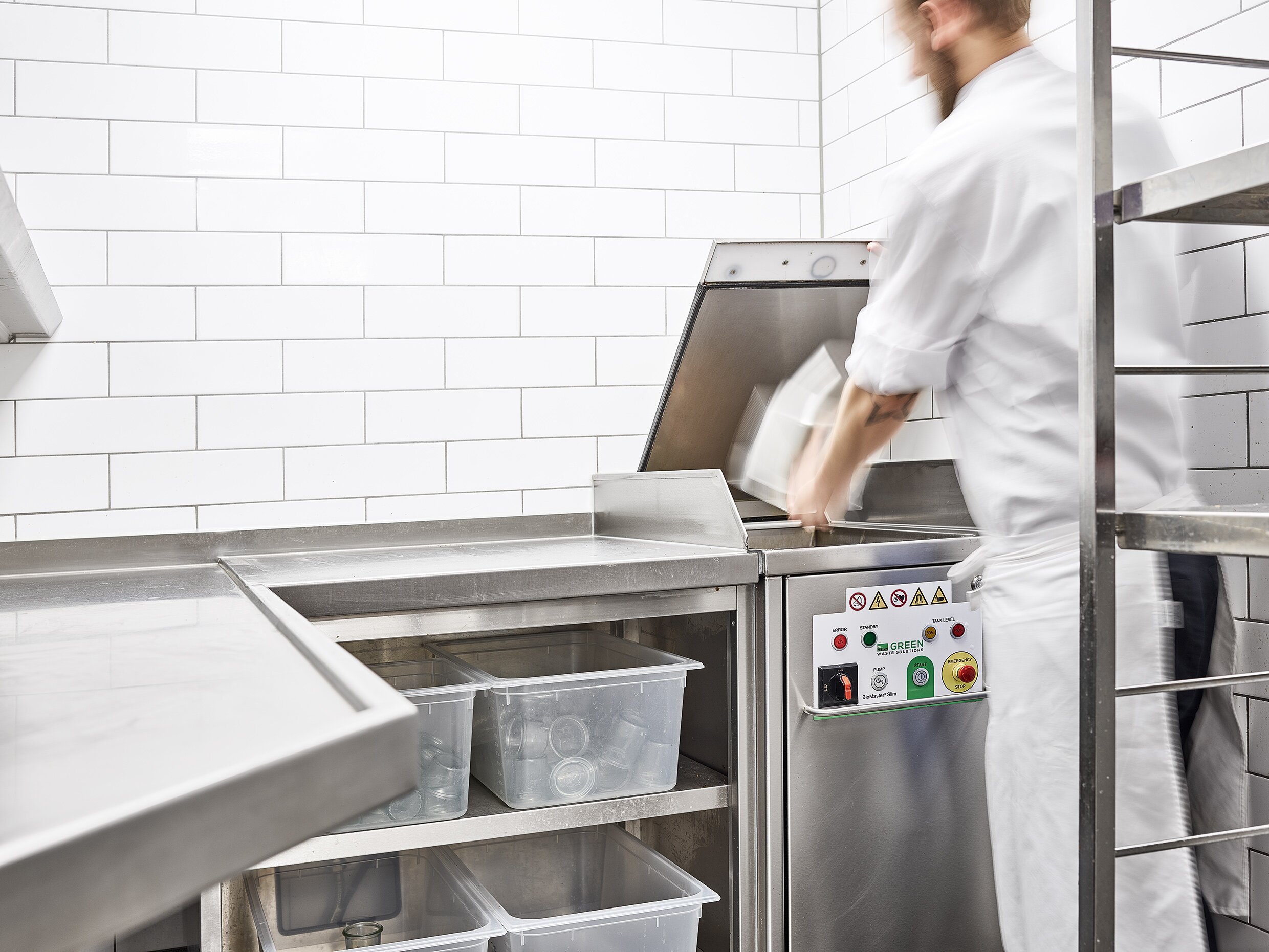
“Food waste is rarely viewed as a potential solution for cost-saving or revenue generation; more generally it is seen as a problem to be dealt with together with an associated expense,” says Richard Harland, managing director of Waste2 Environmental Systems. Its iD-R system, launched late last year, converts the calorific value of food waste into energy that operators can use on-site to reduce power bills or sell to the national grid.
The iD-R-5K uses aerobic and anaerobic digestion to dewater up to 5,000kg of food waste and internally shredded compostable crockery and cutlery per day, reducing volume by 70% to leave a dry fertiliser crumb. Electricity is generated from waste gases by the integral biomass or CHP systems – or via an optional RES module on smaller models where waste volumes are sufficient.
Next-generation technologies are providing the carrot to the legislative stick, rewarding those who do right by the environment. They are contributing to a positive shift in attitude among hospitality operators who Carl Fletcher, head of corporate accounts at business waste collector Biffa, finds are now keen to learn “how to manage waste sustainably, how to use less, recycle more and even cut costs overall by doing this”.
Appy eaters
The Covid-19 lockdown created an ‘unprecedented challenge’ for foodservice suppliers, says Barrie Nash, environmental manager at wholesaler Brakes: “The overnight closure of hospitality created huge supply chain issues with panic buying leaving supermarket shelves empty, while foodservice wholesalers had warehouses full of products and no market.”
A business-wide taskforce tackled thousands of tonnes of potential waste by supplying staple ingredients to major retailers and 500,000 meal equivalents to charities and community groups via Fareshare. Brakes donated a similar amount direct to charities such as foodbanks, the Salvation Army, soup kitchens and animal shelters, along with 50,000 food parcels to vulnerable families.
The Too Good To Go app helps consumers buy surplus, unsold food from local businesses at discounted rates, saving 2.2 million meals from landfill in the UK. Accor’s 63 UK hotels have shifted 54,051 meals in the UK this way, saving 135,127.5kg in CO2, emissions in their drive to slash food waste by 30%.
Fat chance
Fat, oil and grease (FOG) causes 70% of drain blockages and back-ups in commercial kitchens and 75% of sewer blockages.
The Synergy Grill eliminates the problem by atomising fat into carbon dust that can be vacuumed or brushed away. Its low-power demands can save operators up to £1,000 a year in energy consumption.
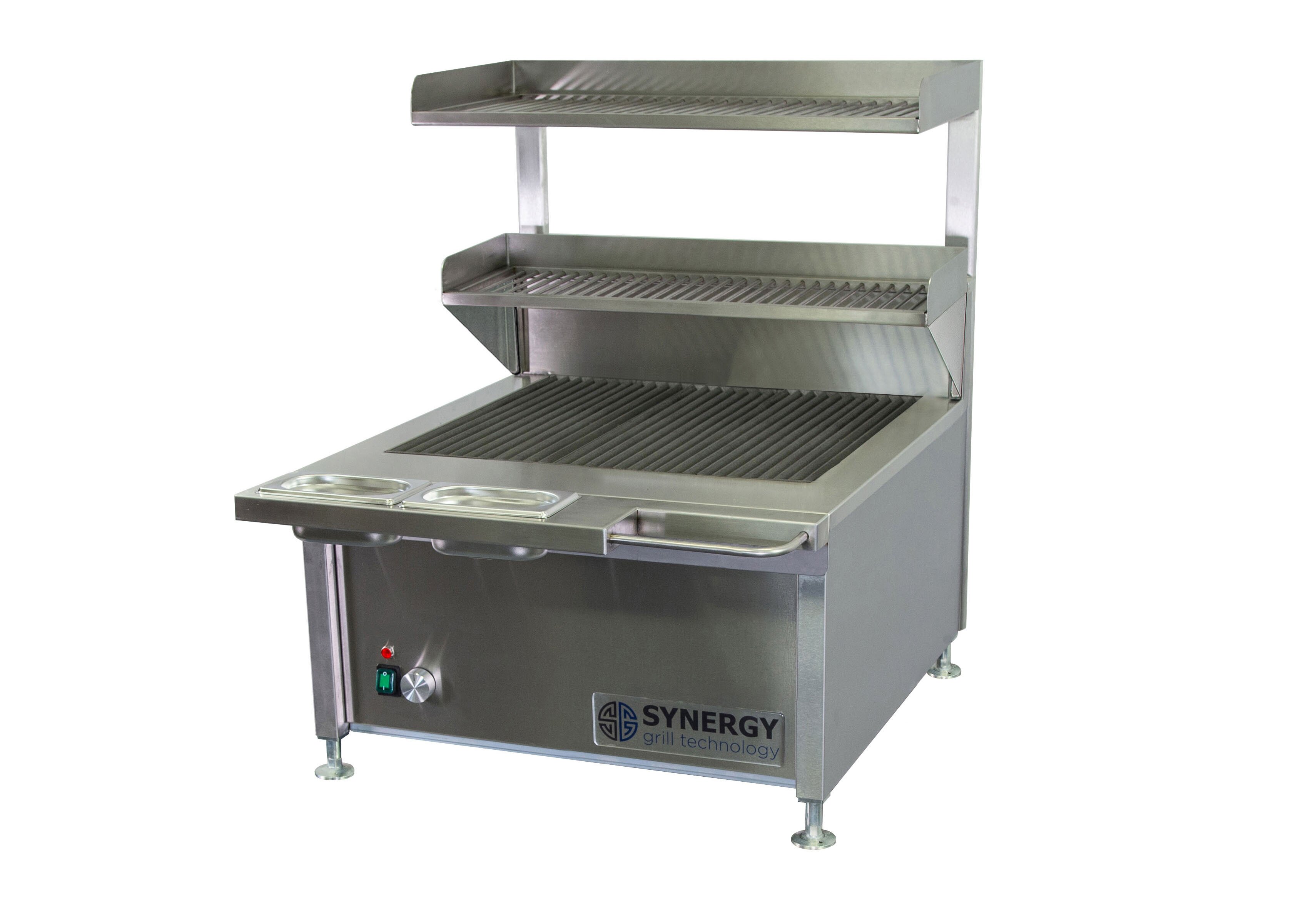
But recovered FOG is a potential cash cow when converted in biogas or bio-diesel, notes Whitehouse at the FEA. Filta Group’s new GreaseMaster Cyclone works with drainage systems, dishwashers/potwash areas, and ovens to recover an industry-leading 2,000 litres of oil each year, worth £400, says commercial director Edward Palin.
It separates and stores food debris in a removable basket, forcing FOG into an oil collection cassette and discharging clean water into the sewers. The ultra-low power consumption – from three pence per day – can save operators up to £1,500 in annual power costs.
Contacts
Biffa UK www.biffa.co.uk
Brakes www.brake.co.uk
Delphis Eco www.delphiseco.com
EcoPure Waters www.ecopurewaters.com
Foodservice Equipment Association www.fea.org.uk
Filta Group www.filta.co.uk
First Mile www.thefirstmile.co.uk/
Fourth www.fourth.com/en-gb
FSG Tableware www.fsg-tableware.com
Leanpath www.leanpath.com
Marren marren.co.uk
Mechline www.mechline.com
Meiko UK www.meiko-uk.co.uk
Pip Organic www.piporganic.com
Synergy Grill Technology www.synergygrill.com
Too Good To Go www.toogoodtogo.org/en
Vegware www.vegware.com/uk
Waste2 Environmental Systems www.waste2es.com



